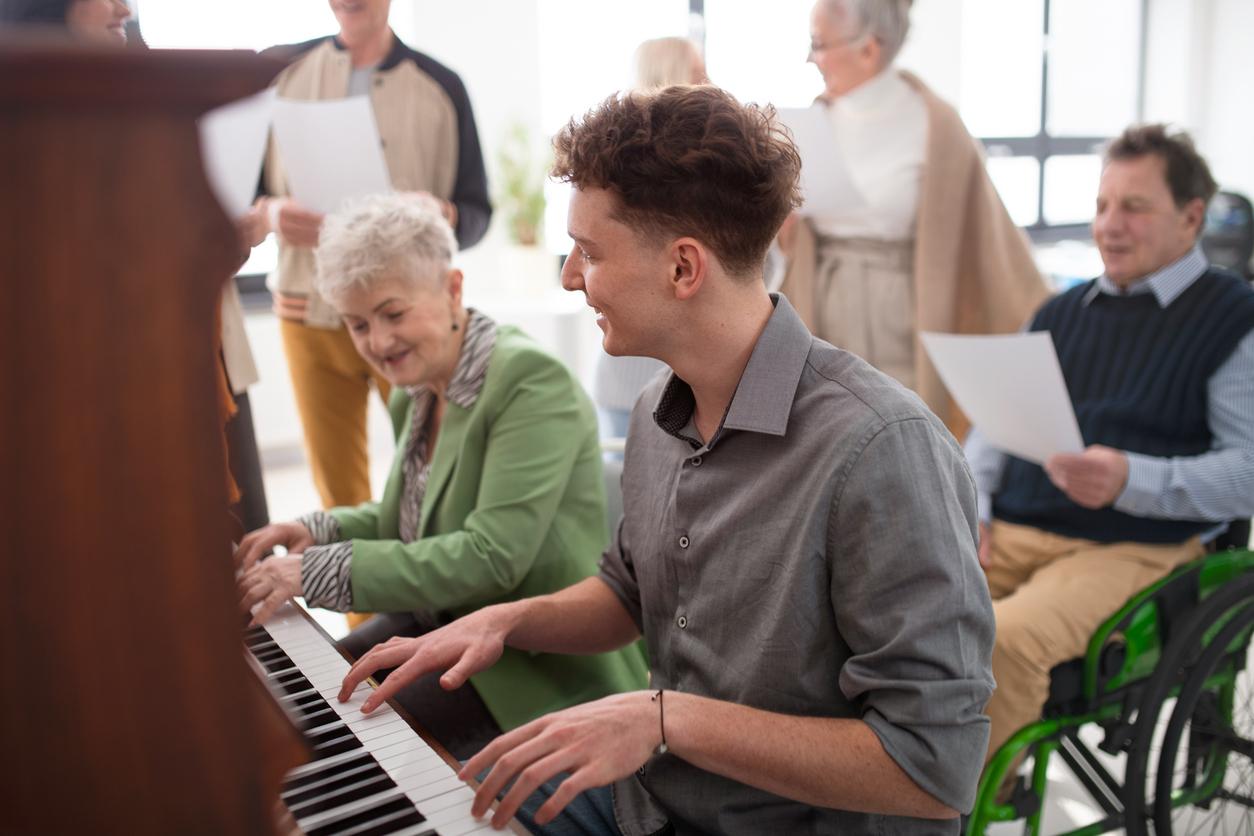The story of “ME” (pronounce “Emmy”), the 101-year-old musician with vascular dementia, is the result of six years of observations by Eleanor Selfridge-Field, a music and symbolic researcher at Stanford University. It once again highlights the complexity of the human brain and its mysteries.
It was during the International Conference on Musical Perception and Cognition (ICMPC), on July 9, in San Francisco (California), that the researcher came back to this person who has already intrigued her for several years. .
Eleanor Selfridge-Field says she met “ME” at Christmas eight years ago. She was remarkably surprised by the virtuosity of this woman despite an illness causing her many memory problems on a daily basis.
After a stroke some 20 years ago, he was diagnosed with vascular dementia causing a major deterioration in intellectual capacity.
Thus, the centenary, beyond a particularly selective memory, does not always know where she is, nor does she remember the events or meetings that have taken place over the past 20 years.
A passion difficult to forget
As a child, “ME” learned the piano and the violin, then the trombone. She saw herself as an orchestra teacher and thus obtained two licenses in music education.
In 1946, the economic context not allowing her to teach decently music, she moved with her husband and her children to Florida, she then decided to put aside her passion.
However, today, it is a repertoire of more than 400 songs that “ME” knows how to play by ear. The centenary has even composed an original work that she manages to replay easily. This leaves Eleanor Selfridge-Field wondering, who would like to better understand what is going on in her head for such a cognitive disparity to exist.
A useful language for memory
Zachary Miller, neurologist at the University of California, and interviewed by the New Scientist, recalls how difficult it is to assess the peculiarity of the brain of “ME”. In addition to the little information available on this case study, such a procedure could be dangerous for a woman of her age.
A lot of research carried out in recent years shows that working on language areas in the brain, such as being bilingual, can delay dementia by several years.
This could explain the very special condition of this piano virtuoso who, according to Eleanor Selfridge-Field, displays a richness in her “truly impressive” harmonic arrangements.
Read also :
Bilingualism stimulates the brain
Alzheimer’s: being bilingual delays the onset of the disease by 5 years
Dementia: 44 million people suffer from it


















